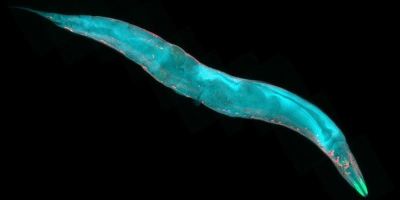Anticancer peptides
A team from the University of Leeds has carried out a study published in Chemical Science that explains the role of pre-organization in anti-apoptotic peptides.
They found that these have potential use as inhibitors of apoptosis – an important therapeutic target in cancer therapy.
The study led jointly by members of the Astbury Centre for Structural Molecular Biology; Prof Andy Wilson and Dr Stuart Warriner (Chemistry) together with Dr Edwards (Molecular and Structural Biology) focused on the effects of adding a constraint to members of the pro-apoptotic effector BH3 peptides BID and BIM. Apoptosis – programmed cell death – is an important process that mis-functions in many cancers, hence the Bcl-2 family of protein-protein interactions have been the focus of anticancer drug-discovery efforts by many pharmaceutical companies. One potential approach is to use peptides derived from the BH3 proteins which act to regulate Bcl-2 family function, however peptides are known poor drugs because they do not typically adopt a bioactive conformation in solution, have poor pharmacokinetic properties (such as facile degradation by proteases) and are not usually cell permeable. An emerging strategy in medicinal chemistry to combat these limitations has been to introduce constraints on the peptide of interest, so as to pre-organize it in a bioactive conformation; in theory this should lead to enhanced binding of the ligand to its target arising from a reduced entropic cost of binding.
In this study the team used introduced hydrocarbon constraints on two BH3 peptides (BID and BIM) using olefin metathesis and performed detailed structural and biophysical analyses on their interactions with the Bcl-2 family proteins Bcl-xL and Mcl-1 using x-ray crystallography, SPR and fluorescence measurements. These established that the peptides bind their targets through and induced fit mechanism, and, that enthalpy-entropy compensation operates for these binding events. These results contradict the widely held view that pre-organization improves binding potencies and will be important in informing future drug-discovery efforts against these important anticancer targets
http://pubs.rsc.org/en/content/articlelanding/2016/sc/c5sc04048e#!divAbstract




